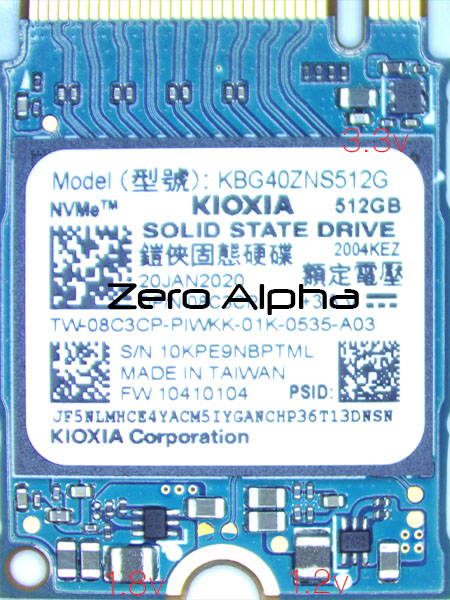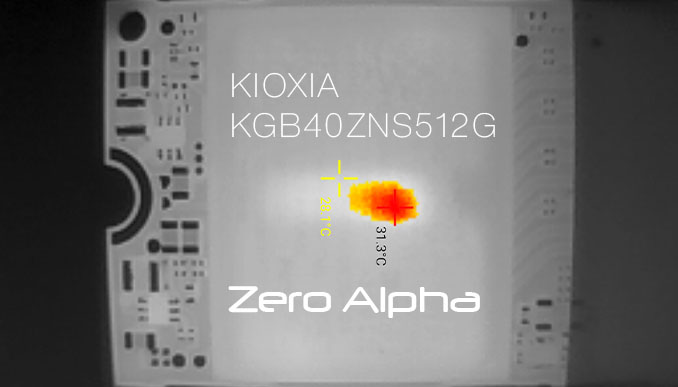Kioxia SSD Data Recovery 512gb KBG40ZNS512G
Zero Alpha are experts in solid state drive data recovery.

1. Firmware Corruption
One of the primary issues with the Kioxia 512GB KBG40ZNS512G SSD is firmware corruption. Firmware acts as the software layer that controls how the SSD operates. Corruption can occur due to various reasons, such as interrupted firmware updates or power failures. When the firmware becomes corrupted, the SSD can become unresponsive, making data recovery challenging.
2. NAND Flash Wear
NAND flash memory, which is used in SSDs, has a finite lifespan. Each write cycle wears out the NAND cells, and over time, this wear can lead to degraded performance or complete failure of the SSD. The KBG40ZNS512G is no exception. As it approaches the end of its lifespan, the likelihood of read/write errors increases, potentially leading to data loss.
3. Controller Failure
The controller is the brain of the SSD, managing all read and write operations. In the Kioxia 512GB KBG40ZNS512G, a failure in the controller can render the entire drive inoperable. Controller failures can be caused by electrical issues, manufacturing defects, or prolonged use under high-stress conditions.
4. Bad Sectors
Bad sectors are areas of the NAND flash memory that become unreadable or unwritable. They can occur naturally over time or be caused by physical damage or manufacturing defects. When bad sectors accumulate, they can lead to data corruption and loss, necessitating complex recovery procedures.
5. Power Supply Issues
SSDs, including the Kioxia 512GB KBG40ZNS512G, are sensitive to power supply issues. Sudden power loss, surges, or fluctuations can damage the drive's circuitry or lead to data corruption. Ensuring a stable power supply is essential to prevent such problems.
6. Overheating
Overheating can severely impact the performance and lifespan of SSDs. The Kioxia 512GB KBG40ZNS512G, like other SSDs, can overheat if not adequately cooled. Overheating can cause thermal throttling, where the drive reduces its speed to prevent damage, or in worst cases, it can lead to permanent damage to the NAND cells and controller.
7. Physical Damage
Physical damage to the SSD, such as from drops, shocks, or exposure to moisture, can cause immediate and often irreparable harm. The compact and delicate nature of SSDs makes them vulnerable to physical trauma, which can lead to complete data loss if not handled properly.
8. Logical Corruption
Logical corruption involves issues at the data level rather than the hardware level. This can occur due to software bugs, improper shutdowns, or malware attacks. Logical corruption can make the data unreadable, even if the SSD itself is still functioning correctly.
9. Interface Issues
The Kioxia 512GB KBG40ZNS512G uses a specific interface (typically NVMe over PCIe). Compatibility issues with the motherboard or other hardware can lead to problems accessing the drive. Firmware updates or driver conflicts can also cause interface-related issues, making data recovery more complex.
KBG40ZNS512G Data Recovery Case Log
15Jul24: This ssd was tested by several computer shops and they said it was no longer detecting. The owner said it was from a laptop which stopped booting into windows. We tested all the electronics and found them to be ok as pictured above. However there was a burnout inside the system on a chip.
